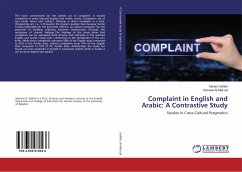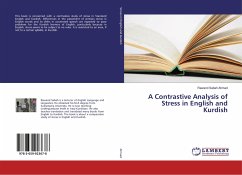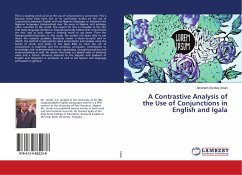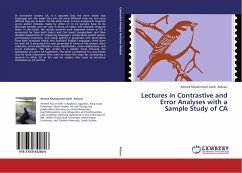This work concentrates on the speech act of complaint. It studies complaints in some selected English and Arabic novels. Complaints are of two kinds: direct and indirect. Whereas a direct complaint is a face-threatening act, i.e., it threatens the hearer's positive face because he/she is held responsible for the perceived offence, an indirect complaint has the potential of building solidarity between interlocutors through the realization of shared feelings. The findings of the study show that complaints can be expressed both directly and indirectly in the selected English and Arabic novels with a difference in the distribution of the two kinds. While direct complaints represent 58% of the English data compared to 42% in the Arabic data, indirect complaints form 41% of the English data compared to 57% of the Arabic data. Additionally, the study has found out that complaint in English is exclusively implicit while in Arabic it can be both implicit and explicit.
Bitte wählen Sie Ihr Anliegen aus.
Rechnungen
Retourenschein anfordern
Bestellstatus
Storno








